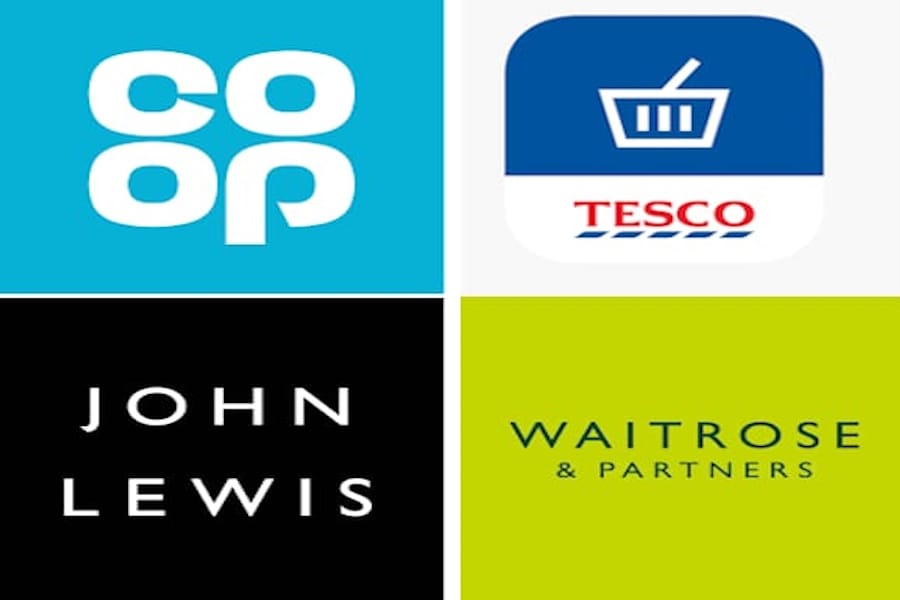Type: Article -> Category: AI Business
The Cooperative Advantage: Is Starting a Business Like the Coop Supermarket Chain Truly Beneficial?

Publish Date: Last Updated: 17th February 2026
Author: nick smith- With the help of CHATGPT
In recent times, there has been a television advertisement suggesting that if one were to start a new business, it should emulate the cooperative (coop) supermarket chain model. This claim raises a pertinent question: Is the cooperative business model truly advantageous for new entrepreneurs? To answer this, we need to delve into the performance of some of the largest coop-based businesses in the UK and compare them against their non-coop counterparts.
The Cooperative Movement in the UK
The cooperative movement in the UK has a long and storied history, with principles rooted in democratic member control, economic participation, and concern for community. The Coop supermarket chain, officially known as The Co-operative Group, is one of the most prominent examples. Founded in 1844, it operates on a unique model where members, rather than shareholders, have a say in how the business is run. But how does this translate into business success?
Major Coop-Based Businesses in the UK
- The Co-operative Group: With over 2,500 stores, The Co-operative Group is the UK's largest mutual business. It operates in various sectors including food retail, funerals, insurance, and legal services. Despite facing financial challenges in the past, particularly with its banking arm, the Group has shown resilience and commitment to its cooperative principles, maintaining a strong presence in the UK retail market.
- John Lewis Partnership: Though slightly different from traditional coops, the John Lewis Partnership operates on a similar model where employees, referred to as "partners," own the business. This structure has fostered a strong culture of employee engagement and customer service. John Lewis and Waitrose, its supermarket division, are renowned for high-quality products and exceptional customer experience.
- Midcounties Co-operative: This is another significant cooperative operating in various sectors, including food, travel, childcare, and energy. It has been recognized for its ethical practices and community-focused initiatives, demonstrating that coops can thrive by adhering to their foundational values.
Comparison with Non-Cooperative Businesses
To evaluate the success of coops, it is essential to compare them with their non-coop counterparts, such as publicly traded or privately held companies.
- Tesco: As the largest supermarket chain in the UK, Tesco operates under a traditional corporate structure. It has achieved significant market share through aggressive expansion, competitive pricing, and strategic acquisitions. Unlike coops, Tesco is driven by shareholder interests, which often leads to a stronger focus on profitability and market dominance.
- Sainsbury's: Another major player in the UK retail market, Sainsbury's combines food retail with banking and financial services. It operates with a conventional corporate governance model, focusing on shareholder value and growth strategies. Sainsbury's has consistently performed well, leveraging its diversified business model to maintain stability.
- Marks & Spencer: Known for its premium food and clothing offerings, Marks & Spencer (M&S) follows a traditional business structure. Despite facing financial challenges and undergoing restructuring efforts, M&S remains a staple in the UK market, driven by its commitment to quality and innovation.
Analysis and Conclusion
The comparison between coop-based and non-coop businesses reveals several key insights:
- Resilience and Ethical Practices: Coop businesses, such as The Co-operative Group and Midcounties Co-operative, often emphasize ethical practices, community engagement, and sustainability. This focus can foster customer loyalty and a positive public image, albeit sometimes at the expense of rapid growth and profitability.
- Employee Engagement: Models like the John Lewis Partnership demonstrate the benefits of employee ownership, including higher levels of employee satisfaction, lower turnover rates, and enhanced customer service. However, maintaining this model can be challenging during economic downturns or periods of low profitability.
- Market Performance: Non-coop businesses like Tesco and Sainsbury's typically show stronger financial performance and market share due to their profit-driven approaches and ability to quickly adapt to market changes. These companies prioritize shareholder returns, which can drive innovation and competitive pricing.
- Financial Stability: Coop businesses may face financial instability, as seen with The Co-operative Group's banking issues. Their commitment to ethical practices and member control can sometimes hinder aggressive growth strategies needed to compete with corporate giants.
Conclusion
The success of a coop-based business compared to a non-coop business largely depends on the specific goals and values of the enterprise. While coop businesses excel in ethical practices, community engagement, and employee satisfaction, they may struggle with rapid growth and market dominance compared to their profit-driven counterparts.
For new entrepreneurs, the decision to adopt a cooperative model should consider these trade-offs. If the primary goals are ethical business practices, community involvement, and employee engagement, a coop model can be highly rewarding. However, for those seeking rapid expansion, significant market share, and strong financial returns, a traditional corporate structure might be more suitable.
Ultimately, the choice between a coop and a non-coop business model should align with the founder's vision, values, and long-term objectives.
Latest AI Business Articles
AI Questions and Answers section for The Cooperative Advantage: Is Starting a Business Like the Coop Supermarket Chain Truly Beneficial?
Welcome to a new feature where you can interact with our AI called Jeannie. You can ask her anything relating to this article. If this feature is available, you should see a small genie lamp above this text. Click on the lamp to start a chat or view the following questions that Jeannie has answered relating to The Cooperative Advantage: Is Starting a Business Like the Coop Supermarket Chain Truly Beneficial?.
Be the first to ask our Jeannie AI a question about this article
Look for the gold latern at the bottom right of your screen and click on it to enable Jeannie AI Chat.
Type: Article -> Category: AI Business










